Christmas is always the worst time of year for me. 2011 was a particularly bad one. Shivering in the cold of my childhood bedroom, I sat – hands clasped around knees – thinking about how best to kill myself.
Hopelessness only scratches the surface of the description – that same feeling I’d had on-and-off for ten years. I was 23. Half my life had been spent in darkness.
I went over the mathematics:
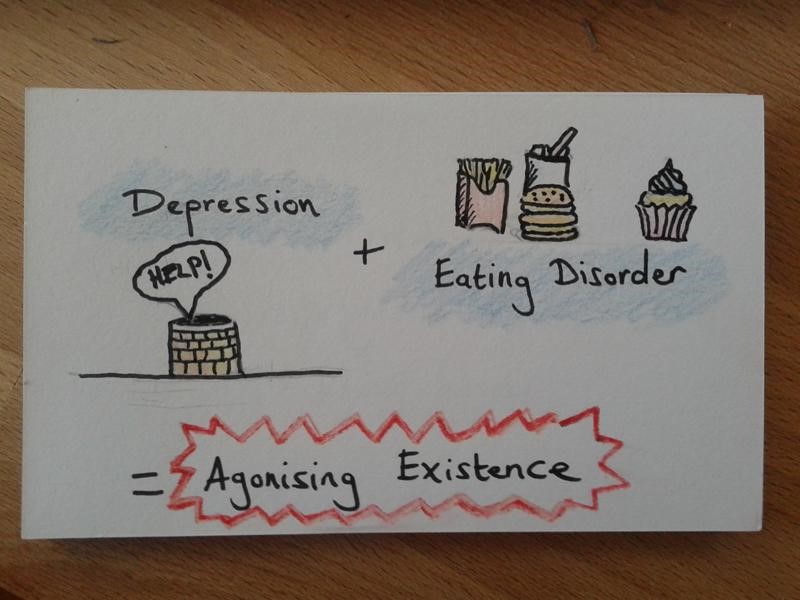
I was finally ready to admit I needed help. So as I sat there, in that disgusting bedroom, I vowed to put an end to my suffering. I told myself “I’m going to give this one final push. I’ll put all of my energy into stopping this continual depression, and these cycles of binge eating and starving myself. If it still doesn’t work, I’ll just kill myself.”
It really was that simple.
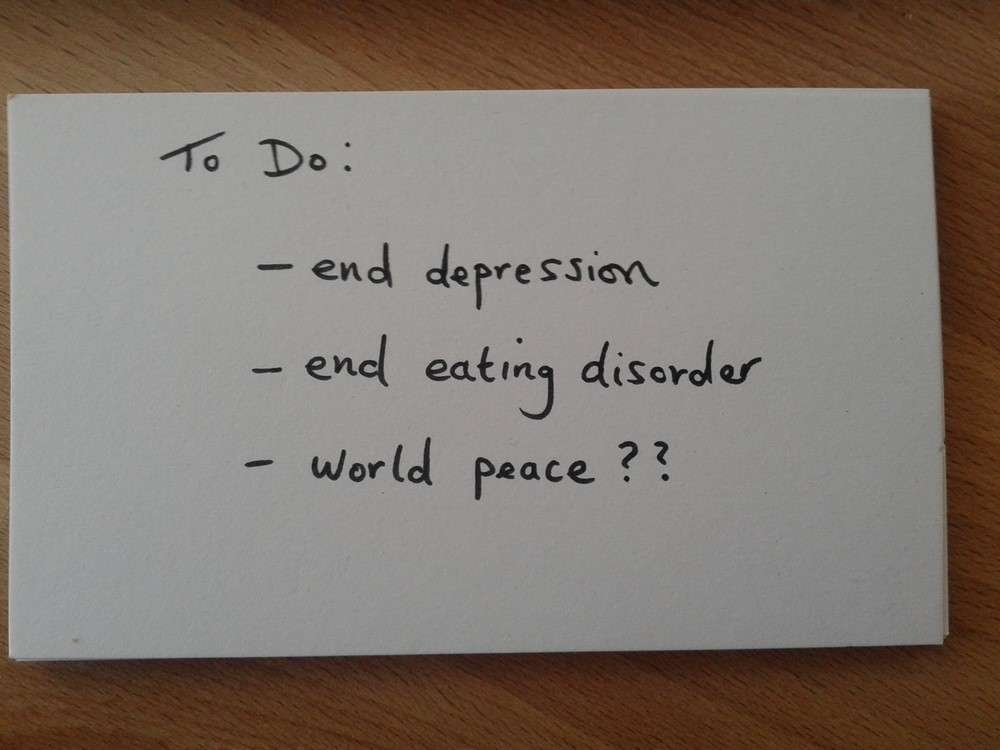
It might have been “simple”, but it seemed impossible.
How to Stop Binge Eating
Here are 3 essential things I used on my journey from rock bottom, to happiness, health, and well-being.
1. Reattach Your Head To Your Body
Up until I was 23, I didn’t even know I had a body.
I will never forget this: one day, I was walking up a hill to work, and suddenly I just felt terrible. Then I was frustrated that I had been feeling OK, and suddenly everything had become unbearable.
I had just learnt about mindfulness, so I did a quick scan down my body (mentally feeling each body part in turn). You know what I discovered? I was just really hot from walking up the hill.
I took my coat off and felt instantly better.
That moment was huge for me. I realized I’d spent my whole life trapped in the thoughts in my head, that I didn’t even realize I had a body — that it, too, had needs — and that I needed to listen.
Neuroscience research has shown that mindfulness increases activation of the medial prefrontal cortex, and decreases activation of structures like the amygdala that trigger our emotions responses[1]. This means that mindfulness increases our control over our emotional brain.
That’s good news for people who are binge eating. Maybe right now there’s a disconnect between your mind and your body, but by using mindfulness to gain more control over your emotional brain, you’ll learn to decide whether to listen to those calls to eat emotionally, or not.
Moreover, being in the present moment day-to-day means you become more aware of the times in life when you aren’t thinking about food, or when you actually are feeling real, true joy.
So any thoughts of “I’m always thinking about food”, or “this will never end.” can be met with a more compassionate “It’s OK. This is just a temporary feeling. I have felt joy and even peace before, and it will – at some point – trickle back into my heart again.”
I find the best way to get into the present moment is to focus on my breathing, because — after all — you are always breathing. Sometimes you just need to be reminded of that fact.
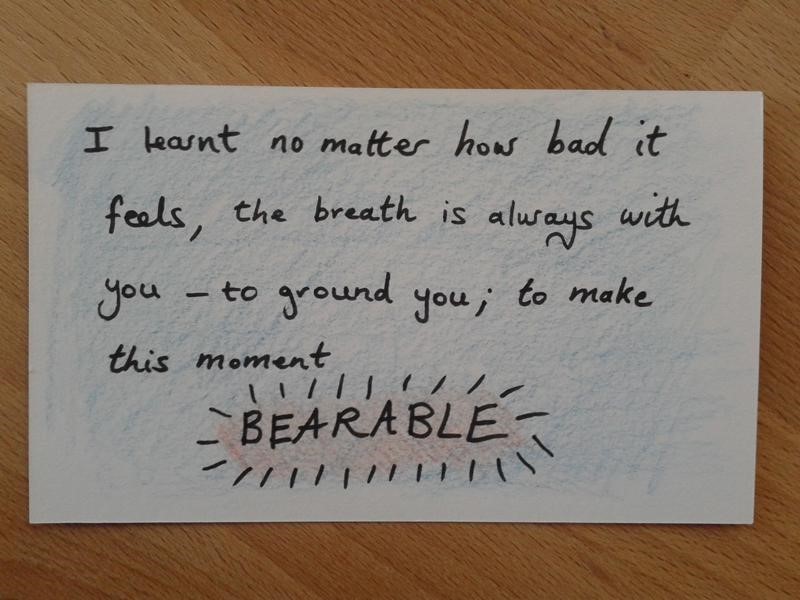
2. Shift Your Self-Worth
When, like me, you grow up believing you’re not enough, you spend every day focused on trying to be better. On trying to prove you’re not a weak, worthless piece of shit.
This is how I started training bodyweight HIIT excessively and starving myself so I’d become thin. I had a laser-like focus on my weight. Every second, I was holding in my stomach, always self-conscious that someone might think I was fat. I’d weigh myself multiple times a day, check my stomach in the mirror every time I went to the bathroom. I called myself fat at every opportunity, but in reality, I was a skeleton.
When my obsessive exercising and restrictive eating turned into binge eating, I didn’t know what to do. All of my self-worth was in being lean. I was so ashamed of myself for binge eating.
I decided I needed to be stronger, so I joined a gym and put all my efforts into showing up. I made sure – no matter what – that I trained consistently. That means I’d go to the gym whether I had binged, felt unbearably unhappy, or otherwise. It means, like the sun, I’d show up every day, even if clouds or stormy feelings tried to obscure me.
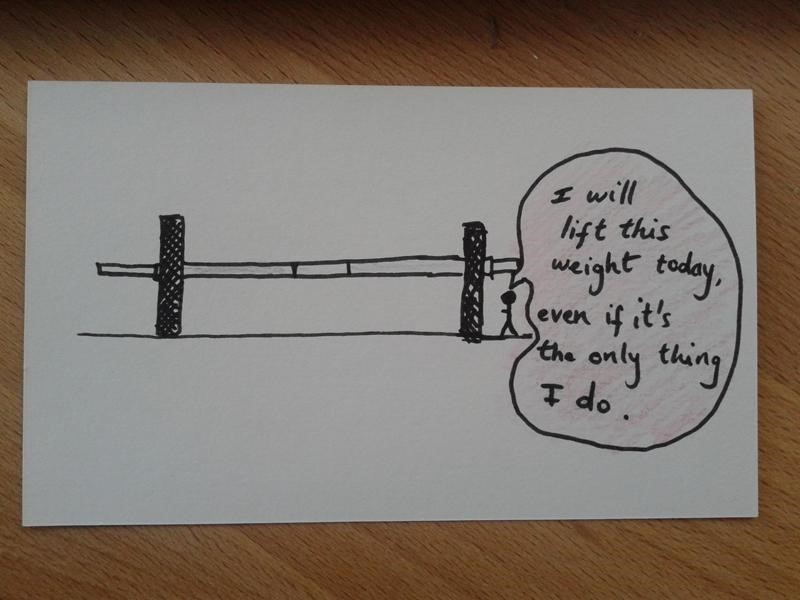
Sometimes getting out of bed felt too hard, but I did it anyway.
One of the main problems with binge eating is feeling out of control. It’s like you don’t have a choice — you feel compelled to eat. By consistently training in the gym, I began to see that I did have a choice over my thoughts.
Because even when I had a million things swirling through my head — and all I wanted to do was crawl under a duvet and hide from the world — by showing up and choosing to stay in the gym, despite what I was feeling, I began to see that I could choose to act in the way I actually wanted to, no matter what my current thoughts were telling me.
At the gym, I also met a group of massive, powerlifting guys. They accepted me. They didn’t seem to care what I looked like but just encouraged me to get stronger. I hadn’t accepted myself yet, but by training with them, I started focusing on the weight on the bar going up, rather than my body weight going down.
Focusing on performance, rather than how lean I was, allowed me to step off the scale. It allowed me to stop putting so much of my worth on my weight. It built up my mental resilience because even if I couldn’t lift the weight I wanted to today, I knew I had the opportunity to try again tomorrow.
This helped me see that even if I couldn’t avoid a binge today, I knew I had the opportunity to try again tomorrow.
I also noticed that my performance in the gym was related to my nutrition, so this helped me get on track too, but my entire mentality had changed:
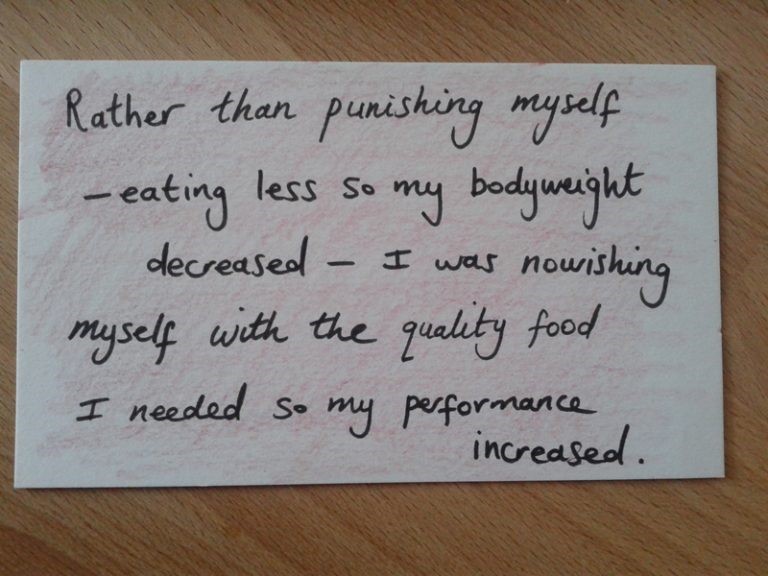
Boom: mindset switch.
I was no longer just a number on the scale.
3. Make Art, Not War
When I was growing up, I used to draw all the time, but when I went to University, I studied Mathematics and forgot all about my creative side.
It was in the midst of my struggles with binge eating that I realized I’d lost my creativity and needed it back. I was scared after having not drawn for so long, scared that… it wouldn’t be very good.
But I realized it didn’t matter what it looked like. No one else would see it. No one would judge it. It was mine alone, and there were things that I needed to express.
I got myself a really rough looking sketchbook that I wasn’t precious about, and started writing my thoughts, and doodling around the words I’d written. I felt like a child again, and it was liberating. Too long I’d been writing, neatly on the line. I felt like I now had the permission to write as big or as small as I like, push the pen so hard that it went through the paper, bend the spine of the book, tear it apart, and write my heart onto those blank pages.
On one evening during those weeks, I felt a strong impulse to binge eat, but instead, I picked up a pencil and for the first time in six years I started drawing.
I drew Daniel Conway’s Softly Sleeping. This is his version:

This is the version I drew that night:

It took all of my concentration to ignore the voice telling me to EAT, but by the time I had finished, the urge was gone.
This was the first glimpse of hope in a long time of darkness. It taught me that these desires weren’t completely uncontrollable, knee-jerk reactions that I absolutely had to listen to. In fact, they were just thoughts – thoughts that I usually became too lost in, so they seemed like the absolute truth.
I still had other unresolved issues (including some traumatic events of my childhood that would often replay in my head) so I also decided to write a story — my story. It ended up becoming the size of a novel and was incredibly difficult to write at times. But it was worth the struggle.
Here’s a message I sent to a friend after several revisions:
“I cannot recall the number of times I’ve replayed those events over in my head, but seeing them written down – reading and editing my work over and over – it almost feels like they are someone else’s; I almost cannot believe they happened to me anymore.”
Creativity was the perfect tonic.
In time, I let more creativity back into my life. Instead of turning to food, I turned to the piano. I wrote. I joined a life drawing class.
I was free.
Not too long later, I got the tattoo of that image on my back (with Daniel Conway’s permission):

It’s a constant reminder to me that I am stronger than I think I am. And that, above all, my creativity never leaves – it always follows me closely, wherever I go.
Because I know now, that when you own your story, you get to write the ending.
[1] http://www.sciencedirect.com/science/article/pii/S1053811916002469


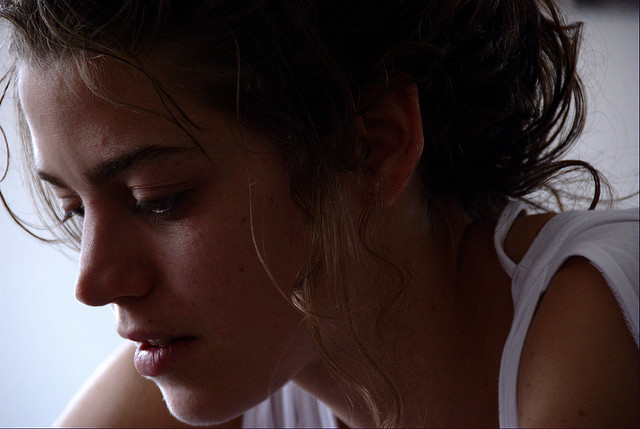



Thank you so much, Maria. What you wrote deeply resonates with me, and at such an important time. I suffer from an addiction different from binge eating, but the implications are the same. Your story of triumph fills me with hope and determination.
I especially loved the part about using art as a tonic, and about doing what you need to do regardless of the mood.
Incredible insight is presented here. A real eye-opener.
Thank you for the kind words, Ayman. I wish you every success on the journey you need to take, and I know that you’ll find your way.